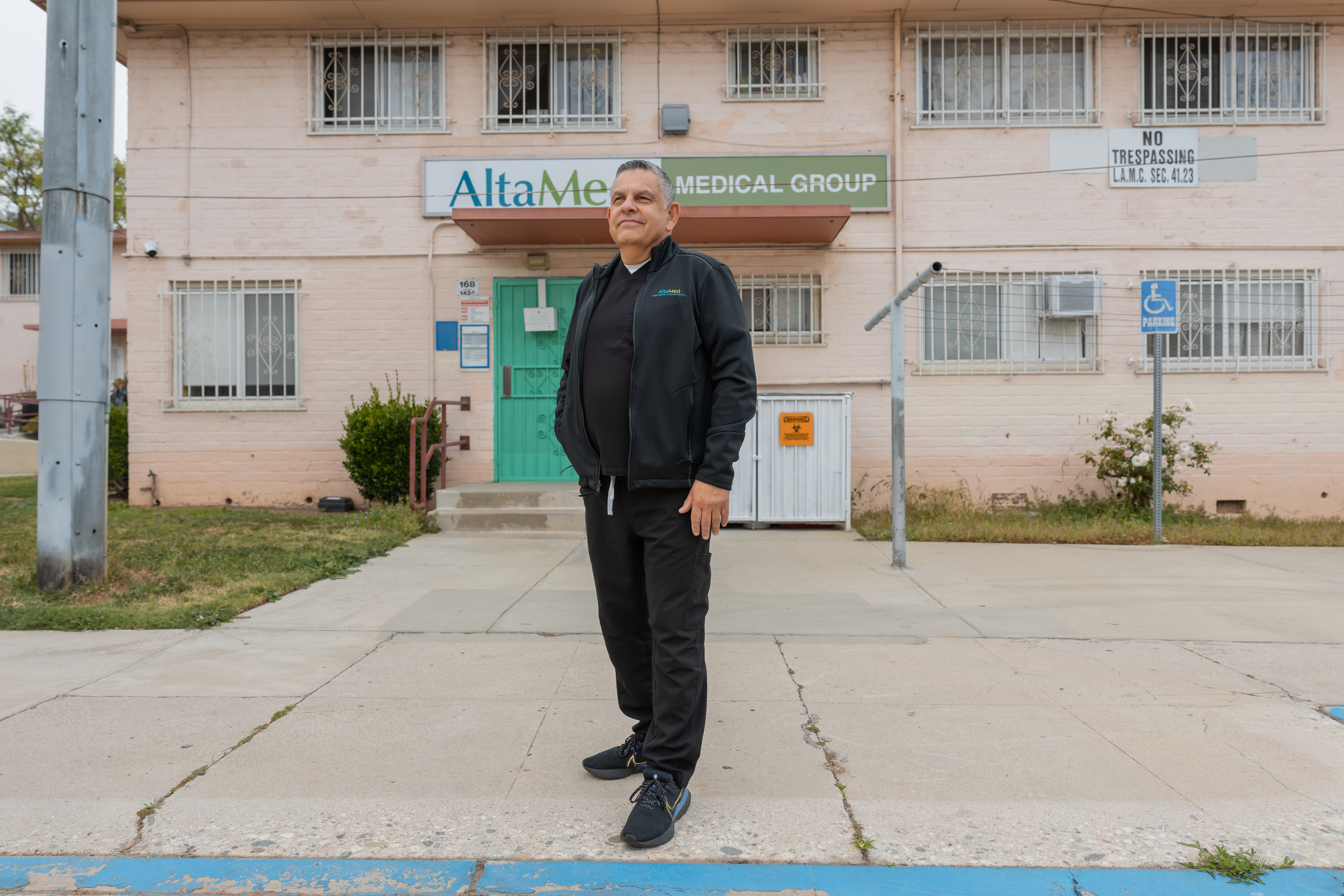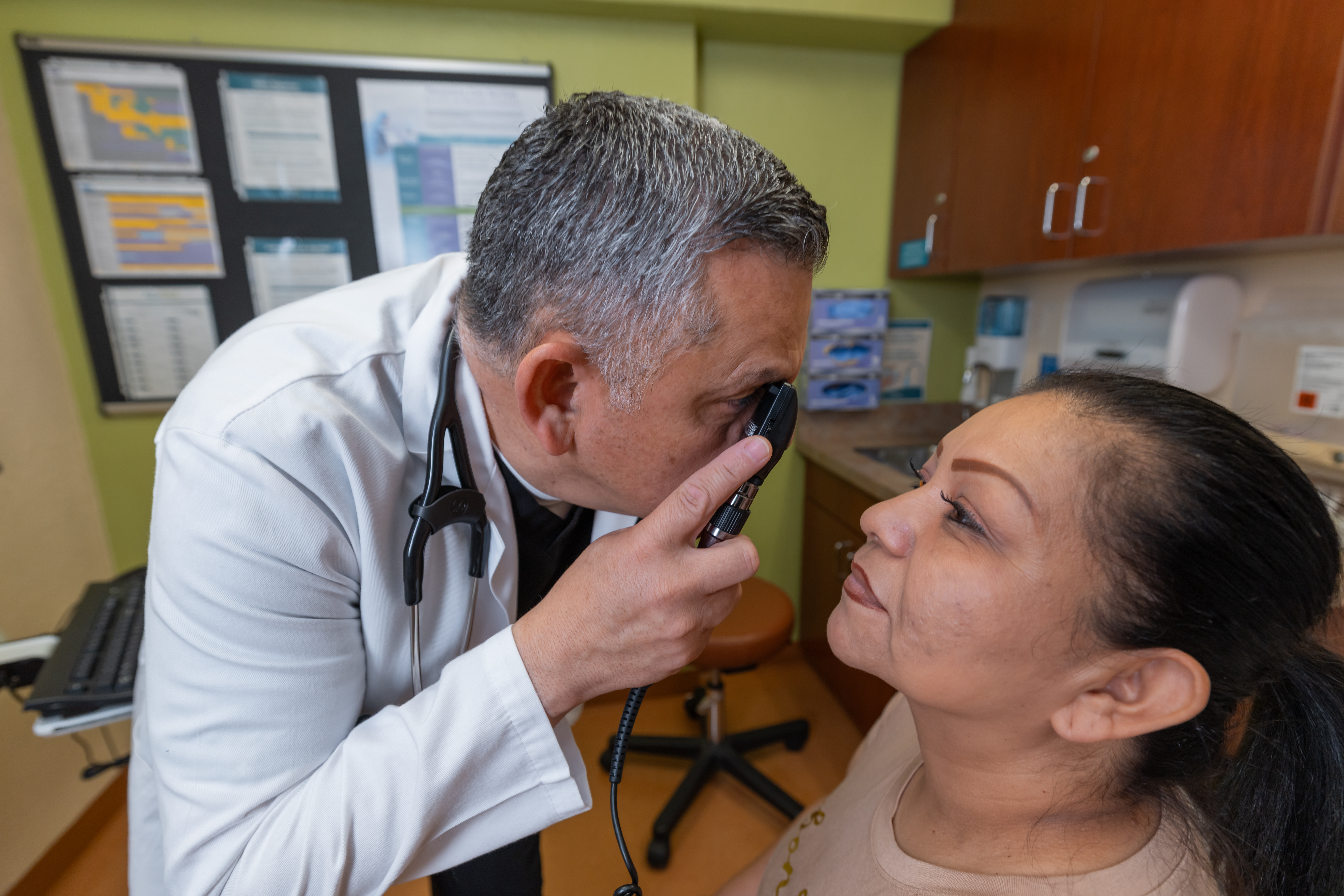Rooted in Justice, Thriving in Community
How AltaMed’s housing clinics carry the legacy of the free clinic forward

In the late 1990s, Miguel Anda was halfway through Paramedic school when he dropped out of the program. Weeks away from beginning his internship at a fire station, he altered course and enrolled in premed classes at the University of Southern California. By 2000, he had graduated as a Physician Assistant (PA) and began working in low-income communities in Los Angeles.
“AltaMed was somewhere I had always wanted to work—in 2005, they called with an offer to run the clinics in the housing sites, and I said ‘I’ll take it. I’m in.”
These clinics are located in Boyle Heights and Chinatown within the Estrada Courts, Ramona Gardens and William Mead public housing developments. They were designed to bring quality, comprehensive primary care directly to communities that face barriers like unreliable transportation, low income, and jobs that don’t allow time off for medical appointments.
Bringing Health Home
Serving as the gateway to AltaMed’s extensive health network, these housing clinics not only provide essential primary care but also connect residents to a broader spectrum of specialized services. Patients trust the providers because they see them regularly, often for years.
“I tell the patients, ‘People are getting the same care on the West Side,’” Miguel explains. “We’re giving you the same vaccines, you’re getting your paps, your mammograms, we’re doing the same labs and we’re taking care of you. We’re like a little island out there, and we do what we need to do.”
Patients at these clinics receive routine check-ups, vaccinations, screenings, and lab work. When patients require care beyond what the clinics can provide, staff members connect them to nearby AltaMed facilities, ensuring they remain within the same trusted health care network. Patient care coordinators help individuals and families enroll in Medi-Cal, ensuring they have coverage for their medical needs. Meanwhile, community health workers engage in outreach efforts, educating residents about preventive care and connecting them to resources for food assistance, housing support, and other essential services. This continuity of care allows for better outcomes and prevents patients from falling through the cracks.

“I tell the patients, ‘People are getting the same care on the West Side,’” Miguel explains. “We’re giving you the same vaccines, you’re getting your paps, your mammograms, we’re doing the same labs and we’re taking care of you. We’re like a little island out there, and we do what we need to do.”
The Ripple Effects of Community Care
Miguel and his colleagues play a pivotal role in detecting and managing chronic illnesses like diabetes and hypertension, conditions that disproportionately affect underserved communities. Their work saves lives.
Miguel recalls several cases where early detection led to life-saving treatment. One case stands out—a patient’s routine mammogram revealed a mass in her breast. AltaMed quickly connected her to the Cecilia Gonzalez De La Hoya Cancer Center at Adventist Health White Memorial for further testing and treatment. She underwent a double mastectomy, a decision that likely saved her life. Now, five years cancer-free, Miguel and his team are helping her take the next step: arranging reconstructive surgery.
Building trust is perhaps the most profound impact of these clinics. Miguel shares the story of a woman who came to the clinic wearing turtlenecks even in the summer. She had a large goiter (mass) on her neck but believed nothing could be done about it. When Miguel asked why her doctor hadn’t addressed it, she told him she had been told it wasn’t possible.
“That’s nonsense,” Miguel told her. “We can fix you.”
She started crying. No one had ever told her that before.
AltaMed arranged for her to see an ENT specialist, and soon after, she had surgery. Today, she lives a happier, freer life without the burden of the mass on her neck. She remains deeply grateful to Miguel and the team that changed her life.
As for Miguel? He sees his role at the housing clinics as coming full circle. “I remember these other Latino PAs and doctors teasing me, asking if I was going to work in Beverly Hills. And I said no—even then, I felt no—I have to work here. I see the need for Spanish-speaking providers. I think the patients connect best with us, and that’s why I want to be here.”
All contributions are tax deductible to the extent allowed by law.
Our Tax ID number is: 95-4090420.
© 2025 AltaMed Foundation – All Rights Reserved



